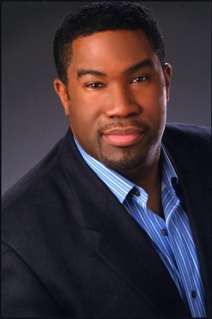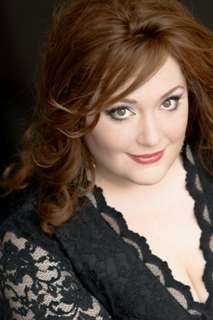|
Back
A Superlatiff Eveniing New York
David Geffen Hall, Lincoln Center
01/07/2016 - & January 8*, 9, 12, 2016
Jean Sibelius: En Saga, Opus 9
Richard Strauss: Ruhe meine Seele, Opus 27, No. 1 – Cäcilie, Opus 27, No. 2 – Pilgers Morgenlied, Opus 33, No. 4
Richard Wagner: Die Walküre: Ride of the Valkyries & Final scene from Act III
Heidi Melton (Soprano), Eric Owens (Bass-Baritone)
New York Philharmonic Orchestra, Alan Gilbert (Conductor)

E. Owens (© Paul Sirochman)
The congruence of this week’s Philharmonic program was, yes, partly that all three composers overlapped in time, that all three (including the Finn) sucked deeply from the ambrosia of German music. Yet the principal tie was that all six works were big, beefy, muscular, mesomorphic musics, works which were played and sung not to stun or frighten or offer love so much as to build up the blood pressure, keep us on the most powerful edge.
Alan Gilbert began with an early Sibelius work–and En Saga was the opposite of his mooning, swirling, enigmatic symphonies. This was like a Nordic Bolero, one tempo pushing the heroic music higher and higher. We continued with three Strauss songs. And while each embraced the amorous, the orchestration by the composer had the glowing color of Mahler.
As for the Wagner Die Walküre settings, words from me for ConcertoNet readers are superfluous. Last night’s performance will wait until the end.
Sibelius’ En Saga was given a kinetic, highly motivated performance, showing Sibelius not only as a fabulous tone-painter, but as an accomplished violinist as well. This Finn de Siècle work could have been a Straussian clone, but Sibelius had a special place for the strings, and the Phil showed them all. Those listening carefully could hear 12 independent string lines (was anybody doing this in 1892??), as well as a variety of mutings, pizzicati, and bristly movements with all the bows, setting the stage for the drama.
That drama, though, was held together by Mr. Gilbert through that syncopated pulse, that ‘riding” rhythm which continued throughout the entire piece, True, the late Pierre Boulez never approved of such visceral energy, rarely playing Sibelius. But he might have been impressed.

H. Melton (© Simon Pauly)
The following three works were certainly surprising. Richard Strauss’ Cäcilie is not unfamiliar, but the orchestration was as shatteringly good as soloist Heidi Melton. Ms. Melton is very much the Grande Dame on Wagnerian opera stages, but on the concert stage, her personality, her glow, her smiles gave a joy to this most careful, even enthusiastic voice. This mezzo was full, rich, phrased with seemingly improvisational care in this and the highly emotional Ruhe, meine Seele.
Eric Owens–a Philharmonic artist-in-residence this year–showed his great range as a baritone in a new work for this listener, Pilgers Morgenlied, written originally with orchestra. It could have been Mahler, but it was Strauss at the top of his form (and Mr. Owens at the top of his register).
This, though, was the prelude to a second half of Wagner’s Die Walküre, starting with the “Ride”, of course. Mr. Gilbert had already essayed that in November with the Juilliard Orchestra playing his Ring synthesis. This week, he started with force and the requisite energy, but was always in command. With Juilliard, there was a bit of a jumbling together with horns and winds in the middle. This Ride had all the necessary orchestral brilliance for the final fortissimos.
The highlight was, of course, the last scene from Die Walküre. One must say that this is not the kind of music you would play for Good Old Dad on Father’s Day. Mary Martin once sang, “My Heart Belongs To Daddy”, but Brünnhilde has to give her whole body to Father Wotan. Not in sex but in lying down within a ring of fire until a Hero rescues her.
You know the story. And while one didn’t have the complete Gesamtkunstwerk–the theater was missing from the theater-drama–one doesn’t miss much of that in this static scene. Nor was anything missing from the two statuesque impressive singers here. Eric Owens has performed Alberich at the Met, and is due to play Wotan this year in Chicago. His Wotan last night was the iconic Wotan: commanding, sad (never melancholy), the master-god who must give punishment, the loving father for whom duty is the sad replacement for love.
Add to this the fact that, while Mr. Owens is a thrilling bass, his high baritone range, was lyrical, mellifluous, ever-dramatic, And in the final moments, he brought what Wagner rarely achieved: that sense of Greek tragedy to the scene.
Ms. Melton changed her stature from the concert-soloist to the noble–and suitably warm–Brünnhilde, pleading, and with her natural splendid instrument.
I confess that listening to the complete four-hour opera is a chore, my German being inferior, Wotan’s endless sermons being tortuous. Listening to this last scene was a joy. Mr. Gilbert never skipped through it, his tempos were steady, the leitmotifs as striking as they were familiar. And listeners still have three more days to experience such rare raptures.
CODA: An addenda to the program was a tribute to Pierre Boulez, whose tenure with the Philharmonic might not have been its more economically successful, but whose luminosity as conductor, speaker, writer and composer is without parallel. Conductor Alan Gilbert summed it up best: “Pierre Boulez was a towering...figure whose Philharmonic leadership implicitly laid down a challenge of innovation and invention that continues to inspire us to this day... I will miss his musicianship, kindness and wisdom.”
Harry Rolnick
|